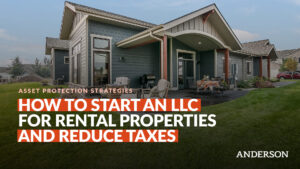In this episode of Coffee with Carl, attorney Carl Zoellner breaks down short-term rental arbitrage: what it is, how it works, and who may benefit from this strategy.
One arena I receive a lot of questions about is short-term rental (like Airbnb) arbitrage. Some of the questions I receive revolve around the simple fact that “arbitrage” is not a word that’s commonly used in everyday language, so let’s first discuss what arbitrage means.
Arbitrage Definition
In the realm of short-term rentals, arbitrage is basically using someone else’s asset to make money. For short-term rentals, an arbitrage involves renting a property in a prime short-term rental location with the understanding that you’ll be subleasing the property as a short-term rental on sites like Airbnb and Vrbo. Generally, an arbitrage involves a long-term lease that is then sublet for a profit. The profit comes in the spread between the cost of monthly rent for the property and the income the property brings in monthly as a short-term rental.
Arbitrage Liability
Personally, I would use a business entity for any arbitrage endeavors. With this type of arrangement, you’re working with so many different parties that you end up facing liability on each side. By this, I mean that you face liability with the short-term rental guests if anything happens, like a trip and fall. But you also face liability with the property owner if the guests cause property damage. So, you want to be careful about the way you go about these types of deals. Critical to the success of short-term rental arbitrage is ensuring that the master lease agreement allows for subleases.
That being said, there are people who find success with short-term rental arbitrage, especially people who don’t have properties they own to let out as short-term rentals themselves. Most of the trainers out there who teach Airbnb arbitrage recommend overpaying the monthly rent so that you and the homeowner both benefit from the arrangement. But be careful: you need to make sure there’s enough profit spread in there. This can be the downfall of short-term rental arbitrage endeavors.
When you begin to look into property management for short-term rentals, you often hear that it eats up a ton of the profit. The industry has gotten wise to the time and effort it takes to manage short-term rentals as compared to long-term rentals, and we’ve seen an increase in costs come with that. It’s not uncommon to see property management contracts for short-term rentals up into the range of 40-50% of gross rents. This may not be quite as much of an issue in the arbitrage arena since many folks who arbitrage properties also manage the properties themselves.
The Takeaway
Overall, short-term rental arbitrage can be a more accessible way to get into real estate investing, but it’s important to calculate the numbers carefully.
Watch as Carl covers short-term rental arbitrage and some of the major considerations to keep in mind with this type of real estate strategy.
As always, take advantage of our free educational content and every other Tuesday we have Toby’s Tax Tuesday, a great educational series. Our Structure Implementation Series answers your questions about how to structure your business entities to protect you and your assets.
Additional Resources:
- Claim your FREE Strategy Session
- Join our next Tax & Asset Protection event to learn more advanced tax minimization & entity structuring strategies
- For all things investing, check out the Infinity Investing YouTube channel
- Subscribe to our YouTube channel to make sure you never miss the latest strategies & updates
Got an idea for a future Coffee with Carl? Send it to Carl at cwc@andersonadvisors.com.
Free Strategy Session with an Anderson Advisor
Receive a detailed risk assessment to assist in lowering problem areas that could wipe out all of your assets with one wrong move. Speak with an Anderson Professional Advisor to get your FREE Strategy Session.
Limited-Time Offer: ($750 value.)












